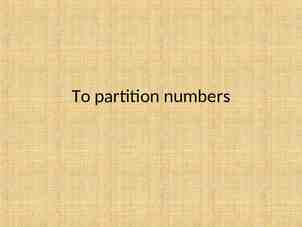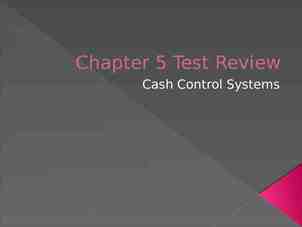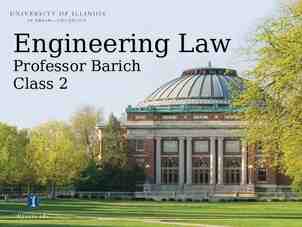Restrictions, including those restrictions permitted by the
21 Slides351.50 KB

Restrictions, including those restrictions permitted by the European Convention on Human Rights POLICE POWERS ARREST

Aims and Objectives At the end of the session the student will be able to: Evaluate arrest statistics. Explain the basic arrest provision in PACE and other statutory provisions in relation to arrest powers of the police and private citizens. Analyse a variety of situations and assess whether the arrest involved was lawful or not.

Arrest powers The police have statutory powers to detain people against their will i.e. powers of arrest. An arrest can be made with or without a warrant. [Private citizens also have a power to arrest but we will look at this later].

Arrest with a warrant Magistrates’ Courts Act 1980 s 1 – Magistrates can issue a summons for a person to attend court or issue a warrant for their arrest. Police have to apply in writing and give an oral statement on oath as to the circumstances for which the warrant is required. Warrant must state name of person to be arrested and the details of the offence they are being arrested for.

Arrest without a warrant Police powers of arrest are contained in PACE 1984 s 24 Under this section, the police could make an arrest for an ‘arrestable’ offence. A new s 24 was introduced by s 110 of the Serious Organised Crime and Police Act 2005 Under this section the police can make an arrest for ANY offence provided it is NECESSARY.

PACE1984 s 24 (as amended by SOCPA 2005 s 110) A constable may arrest without a warrant: anyone who is about to commit an offence anyone who is in the act of committing an offence anyone who he has reasonable grounds for suspecting to be about to commit an offence. anyone who he has reasonable grounds for suspecting to be committing an offence.

PACE 1984 s 24 (as amended by SOCPA 2005 s 110) In allowing the police to arrest someone for ANY offence under the new s 24, the police have been given very wide powers which may be open to abuse. However, there is one criteria which must be satisfied for s 24 which is that the arrest must be NECESSARY.

PACE 1984 s 24 (as amended by SOCPA 2005 s 110) The arrest will be NECESSARY if: The person’s name and address cannot be ascertained or the police believe that they have given false details. It will prevent them: injuring being themselves or another injured causing loss or damage to property committing another offence. CONTINUED

PACE 1984 s 24 (as amended by SOCPA 2005 s 110) The arrest will be NECESSARY if it is: to protect a child or other vulnerable person to allow prompt and effective investigation of the offence or of the conduct of the person to prevent the person disappearing.

Code of Practice G Code G governs good practice when the police carry out an arrest and states that: A lawful arrest requires two elements: A person’s involvement or suspected involvement or attempted involvement Reasonable grounds for believing that the person’s arrest is necessary. Arresting officers are required to inform the person arrested that they have been arrested even if this fact is obvious and of the relevant circumstances in respect to both elements.

Code of Practice G This gives the police very wide powers in relation to carrying out an arrest. The only safeguards are that there must be ‘reasonable grounds’ and that it must be ‘necessary’. It is purely the decision of the arresting officer whether these grounds exist.

Other Statutory Powers of Arrest Criminal Justice and Public Order Act 1994 Incorporated s 46A into PACE – police can arrest anyone who has been released on bail but fails to attend the police station at the set time. Also gives power to arrest for: collective and aggravated trespass preparing for or attending a rave intentional harassment. Continued

Other Statutory Powers of Arrest Terrorism Act 2000 s 41 gives police the power to arrest and detain, without charge, anyone who they suspect of being a terrorist for up to 48 hours. This power does not require a warrant.

Reasonable Suspicion Remember that one of the prerequisites for arrest is ‘reasonable suspicion’. O’Hara -v- Chief Constable of the Royal Ulster Constabulary (1996) – developed a 2 stage test for reasonable suspicion which was upheld by the ECHR in O’Hara -v- UK (2002). Reasonable suspicion is governed by Code of Practice A – can never be based on personal factors alone.

Other Provisions to make the Arrest Valid When making an arrest, the officer must tell the suspect the reason for the arrest even if it obvious – s 28 PACE. The officer must use simple, non technical language that the person can understand – Taylor -v- Chief Constable of Thames Valley Police (2004). The officer must state their name and station where they are based.

Searching Someone Arrested Once arrested the police have the power to search the person for any item which they may have used during the course of the crime for which they have been arrested or any evidence relating to an offence. The same rules apply as for stop and search if the search is carried out in public i.e. only outer coat, jacket and gloves can be removed etc.

Arrest and Common Law The police retain a common law power to arrest for breach of the peace. McConnell -v- Chief Constable of the Greater Manchester Police (1990). This power applied even where the breach is on private property.

Arrest and Common Law Bibby -v- Chief Constable of Essex Police (2000) 4 conditions must be satisfied before exercising this right: the threat to the peace must be real and present. the threat must come from the person arrested. the conduct must interfere with the rights of other people. that conduct must be unreasonable.

Citizen’s Arrest s 24A PACE. Limited to indictable offences. Must have reasonable grounds to believe that an arrest is necessary and that it is not reasonably practicable for a police officer to carry out the arrest. Needs to be used carefully because if the citizen has made a mistake they can become liable for damages – Walters -v- W H Smith & Son Ltd (1914).

Other Provisions relating to Arrest s 30 PACE – the person who has been arrested must be taken to the police station as soon as practicable after arrest. ECHR Art 5 – a person is not to be deprived of their liberty except in certain circumstances.

Arrest Can you remember the main arrest powers?






